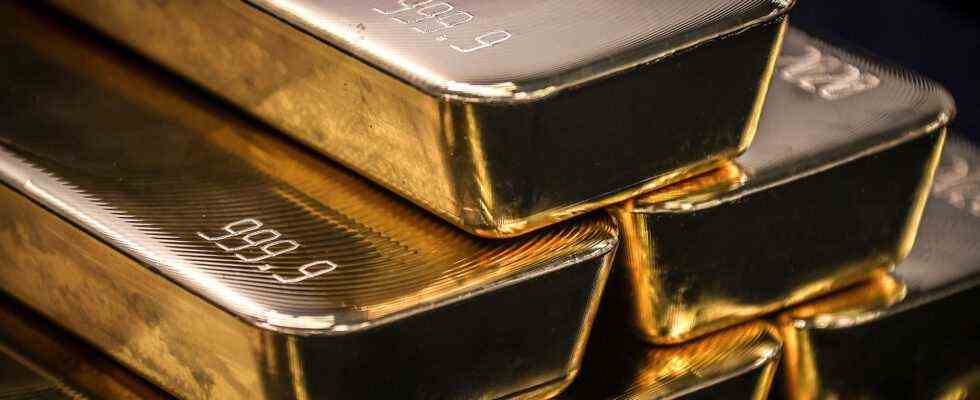Status: 08/30/2021 01:04 p.m.
Rising inflation makes gold attractive to many investors in Germany. In the first half of the year, German citizens bought more of the precious metal than they had for years. There was only one country where gold was more popular.
Gold has magically attracted people for centuries: lovers give each other gold rings, the super-rich enjoy a gold-coated steak and athletes dream of a gold medal at the Olympic Games or Paralympics. The precious metal is currently becoming more and more a coveted object for private investors: In the first six months of this year, German citizens bought more than 90 tons of gold in bars and coins, according to the latest report by the World Gold Council. This is the largest amount within a half year since 2009. Even in the Corona year 2020, gold sales were lower in the first six months.
The Germans are European champions when it comes to buying gold. Almost 60 percent of the yellow precious metal sold in Europe came from Germany. The Swiss and Austrians followed in second and third place in the European rankings. Only the Chinese ordered more gold in the first half of 2021 than the Germans.
Fear of high inflation
The run on the yellow precious metal in Germany has to do with the growing fear of inflation. In July, the inflation rate in Germany climbed to 3.8 percent, the highest level in almost 30 years – and the inflation rate had already increased gradually in the first few months of the year. Because of the trillion-dollar aid from central banks and states in the Corona crisis, many citizens fear excessive public debt and high inflation in the long term.
The Germans’ fear of inflation is traditionally deeply rooted. In the past 100 years there have been three currency reforms in Germany. The hyperinflation of 1923, when bills were paid in wheelbarrows full of banknotes, engraved itself on the collective memory of Germans.
German citizens own more gold than the Bundesbank
In the meantime the Germans have amassed a great treasure trove of gold. They have more than 9,000 tons of gold in safes and lockers, which is almost three times as much as the Bundesbank. This is the result of a gold study published this year by ReiseBank and Steinbeis University Berlin. German private households and the Bundesbank hold over six percent of the world’s gold reserves.
Gold bars are particularly popular. More than half of the investors have bought classic gold bars and table bars. A third of German investors rely on gold coins.
Because gold owners enjoy tax privileges. The trading of fine gold is exempt from VAT. Bars and coins can be sold tax-free after a holding period of one year. However, gold can now only be bought anonymously in cash for less than 2000 euros. Above this threshold, the purchase must be reported – officially with reference to the fight against money laundering.
Gold price has risen significantly over a twelve-year perspective
In the long term, the investment in gold has paid off. While the precious metal cost around $ 1,000 an ounce in 2009, it is now worth $ 1,800. This year, however, the gold price has fallen by five percent and is far from its record high of 2037 dollars per troy ounce in the Corona year 2020.
Experts cite the recovery of the global economy and the approaching exit from the ultra-loose monetary policy of the central banks as the reason. For the first time in a long time, key interest rates in the USA could be raised again in 2022. Rising interest rates make gold less attractive. Because, unlike government bonds, the yellow precious metal does not generate any interest.
Gold ETF outflows
In fact, some professional investors have since sold gold again. For the first time in seven years, investors withdrew money from gold index products (ETFs) in the first half of 2021.
“Gold is not a perfect protection against inflation,” said Mark Dowding, chief investment strategist at BlueBay Asset Management. In a strong global economy, investors tend to buy stocks. In addition, the price of the yellow precious metal fluctuates more than some other asset classes such as real estate. On the other hand, if inflation continues to stay above two percent, real yields on bonds are likely to remain at zero or remain negative. As a result, gold would become more attractive again compared to bonds.

